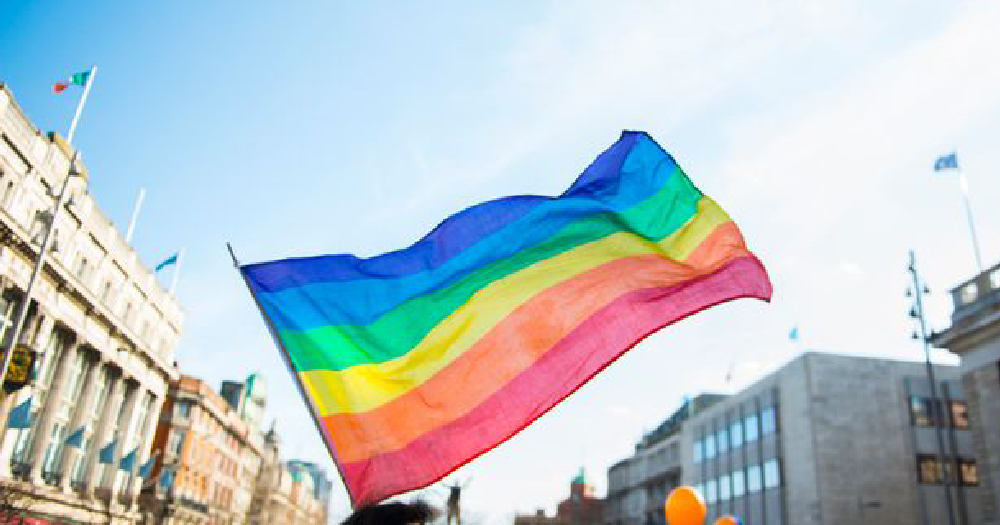Pradeep is a gay person from India living in Ireland for eight years. As part of a new series he will be holding conversations with fellow Asian queer people living in Ireland discussing inclusion and diversity, sexual Racism, objectification, and mental health.
I recently interviewed Ran Cai. Originally from East Asia, he has been living in Europe for nearly ten years. After studying and working in Glasgow and London, Ran came to Dublin to study Gender and Sexuality as his second Master’s degree. He fell in love with Dublin’s unique essence. He describes Dublin as a city where food, nature, culture, and art are within walking distance. Ran came across some of the friendliest, most creative, and intelligent people he had met in Dublin.
Asian queer people face many challenges within the community with some noticeable and some unseen problems causing a considerable amount of mental and social distress. Ran has experienced plenty of online and offline Racism. While studying at UCD, he began to recognize the impact of Racism on his mental health. While telling these experiences, he says, “as a relatively small group in Ireland, experiences of queer Asian person can often be overlooked, invalidated, or even worse denied.”
As an Asian queer person myself, I instantly relate to what Ran is talking about. In my observation, some Irish queer people deny that Racism exists within the community, and seek an explanation about Racism from the person of color. Ran insists that “before I share some of my experiences, I want to stress that this is me hoping to bring issues involved around queer Asian experiences to the surface. It is never my intention to self-victimize, nor do I wish to further perpetuate the stigmatisation of queer Asian bodies.”
When Ran moved to Dublin initially, he encountered some Racist incidents on the dating scene. He received a message saying, “You think you can do better, but you won’t. I know everyone who would date an Asian guy in Dublin”. Back then, he shrugged it off as a childish joke and didn’t take it seriously. Sadly, soon he started to receive messages like, “Why are you here? Asians are not popular here” and “Only older guys would consider sleeping with Asians”. To become vocal about these experiences of direct Racism, he began to share screenshots of those online conversations. He soon began to receive feedback from people saying that “Racism is everywhere. You have to get over it”.
It takes a while to understand the normalisation of sexual Racism, racial stereotypes, and objectification around us and how it impacts our mental wellbeing. In Ran’s case, with the help of friends, colleagues, and therapy, he began to understand the toxicity of the online environment, which was particularly apparent on online dating platforms. What he is still digesting to this day are experiences he witnessed offline.
On several occasions when he was hanging out with friends or on dates, people directly questioned his partners or date, asking “why they would want to be with someone Asian?” It suggested the idea that Asian people were categorized as a niche, which made him feel unattractive and inferior.
Issues around Racism and sexuality never have a singular cause. Mainstream representations, economy, culture, politics, many other factors, have played a role in presenting one race as more desirable and others as less desirable. Therefore, Ran has no intention of holding an individual responsible for his experiences. Ran thinks that to normalize the attractiveness of queer persons of color takes more than sympathy and hyper-sexualization.
As a community, we need to open up to the idea of talking about the personal sexual preference system that creates an invisible structural, cultural, and racial segregation. It directly marginalizes an entire race of people as potential friends, sexual partners, or acquaintances.
© 2020 GCN (Gay Community News). All rights reserved.
Support GCN
GCN is a free, vital resource for Ireland’s LGBTQ+ community since 1988.
GCN is a trading name of National LGBT Federation CLG, a registered charity - Charity Number: 20034580.
GCN relies on the generous support of the community and allies to sustain the crucial work that we do. Producing GCN is costly, and, in an industry which has been hugely impacted by rising costs, we need your support to help sustain and grow this vital resource.
Supporting GCN for as little as €1.99 per month will help us continue our work as Ireland’s free, independent LGBTQ+ media.
